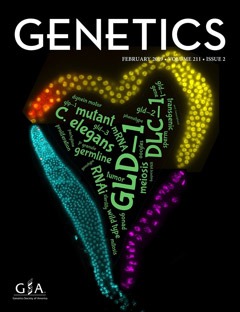Cystic Fibrosis: Exploration of Evolutionary Explanations for the High Frequency of a Common Genetic Disorder
Author(s):
Daniel Taub and Joshua Page
Overview:
The authors present a guided classroom exercise in which students derive and evaluate hypotheses to explain the relatively high incidence of cystic fibrosis (and the alleles responsible) in European and European-derived human populations. Through this exercise students develop their abilities to apply evolutionary concepts, and generate and evaluate evolutionary hypotheses. Students also develop understanding of human genetic variation and the population genetics of genetic disorders.
Genetics Concept(s) Addressed:
Genetic variation: How do different types of mutations affect genes and the corresponding mRNAs and proteins?
Evolution and Population Genetics: What are the processes that can affect the frequency of genotypes and phenotypes in a population over time?
Core Competencies Addressed:
Students should be able to implement observational strategies to formulate a question.
Students should be able to generate testable hypotheses.
Students should be able to gather and evaluate experimental evidence, including qualitative and quantitative data.
Audience:
Introductory undergraduate; biology/genetics majors
Activity Type:
Lecture/In-Class Exercise
Activity Length:
Two hours, to be divided as appropriate for class schedule
Citation:
Taub, Daniel and Page, Joshua (2013). Cystic Fibrosis: Exploration of Evolutionary Explanations for the High Frequency of a Common Genetic Disorder. Genetics Society of America Peer-Reviewed Education Portal (GSA PREP): 2013.004;
Resource Justification and Instructor Guide (PDF, Word)
- Instructor’s review on cystic fibrosis. This provides a brief review of the molecular biology, population genetics, and medical aspects of cystic fibrosis to prepare the instructor prior to class. It also includes a discussion of evolutionary hypotheses that have been advanced to explain the high incidence of cystic fibrosis in European human populations.
- Instructor classroom flow and discussion prompt. This provides advice to instructors and a sample script for the use of these questions to stimulate classroom discussion and consideration of relevant evolutionary hypotheses.
The questions on these slides comprise the heart of the exercise. Students address the questions in class, typically in discussion with small groups of fellow students.



